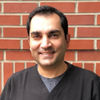How To Take Care of Your Toothbrush?
- kkhalilinejad

- Nov 20, 2024
- 3 min read

Taking care of your toothbrush is not just a minor detail; it is absolutely crucial for maintaining optimal oral hygiene and ensuring that it effectively cleans your teeth. Many people may underestimate the importance of their toothbrush, but neglecting its care can lead to a host of dental issues down the line. First and foremost, always make it a habit to rinse your toothbrush thoroughly with water after each use. This vital step serves to remove any lingering toothpaste, food particles, and debris that may cling to the bristles after brushing. By performing this simple yet essential action, you are not only keeping your toothbrush clean but also helping to prevent harmful bacterial buildup that could compromise your oral health. Just imagine using a tool meant for cleaning your teeth while it harbors bacteria from previous uses—this can be counterproductive at best and detrimental at worst! To further enhance its longevity and effectiveness, consider storing your toothbrush in an upright position in a well-ventilated area instead of in a closed container where moisture can accumulate. By taking these straightforward precautions, you ensure that your toothbrush remains an effective ally in achieving and maintaining bright, healthy teeth for years to come.
Additionally, it is crucial to store your toothbrush in an upright position, allowing it ample opportunity to air dry thoroughly between each use. This simple practice not only promotes hygiene but also minimizes the risk of contamination. When you allow your toothbrush to breathe, you significantly reduce the chances of bacteria and other harmful pathogens proliferating on its surface. In contrast, covering your toothbrush or placing it in a closed container can create a warm and moist environment that is perfect for bacteria growth, which could ultimately jeopardize your oral health. Moreover, it's essential to replace your toothbrush every three to four months; however, if you notice that the bristles are frayed or worn down before this time frame, do not hesitate to replace it sooner. Frayed bristles are less effective at cleaning teeth and can potentially lead to gum irritation or ineffective plaque removal. By adhering to these guidelines—storing properly and replacing regularly—you will ensure not only a more effective dental care routine but also contribute positively toward maintaining optimal oral health for years to come.
Furthermore, it is crucial to ensure that your toothbrush is kept well away from the toilet area. This precaution is not merely a matter of preference; it is rooted in sound hygiene practices. When you flush the toilet, tiny droplets of water and bacteria can be propelled into the air, potentially contaminating nearby surfaces—such as your toothbrush. By keeping your toothbrush at a safe distance from this source of germs, you are taking a wise step towards preventing unwanted bacteria from making their way onto the bristles. Taking these straightforward yet effective practices to heart will not only extend the lifespan of your toothbrush but will also play an essential role in maintaining excellent oral health. After all, a healthy smile begins with proper care and attention to detail! By safeguarding your toothbrush from potential contamination and ensuring that you are using clean tools for your dental hygiene routine, you are setting yourself up for success. Remember, investing a little effort into these habits today can lead to brighter smiles and healthier teeth tomorrow!




Comments